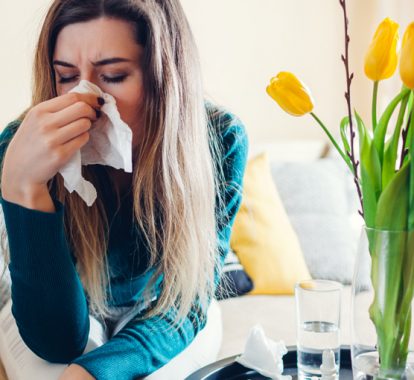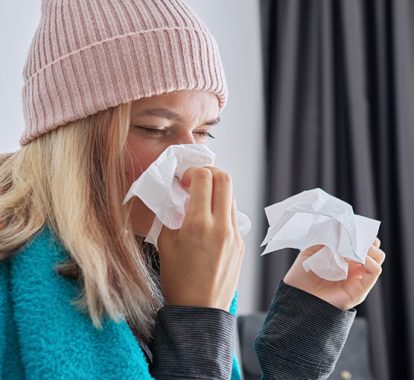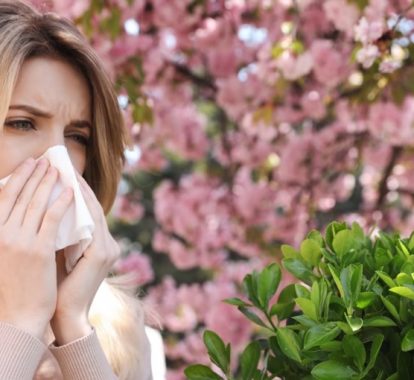The Four (Allergy) Seasons in South and Central Texas
November 28, 2017
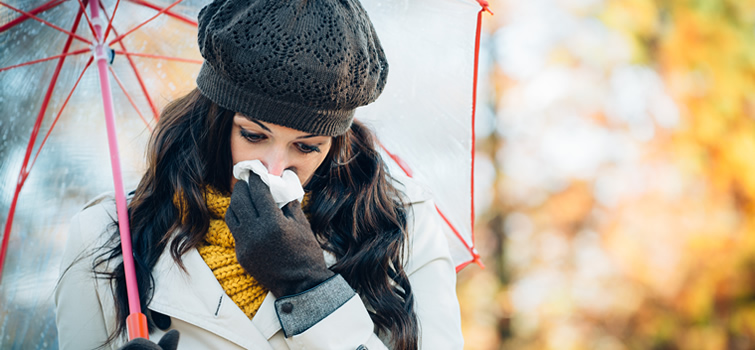
In South and Central Texas, we have four seasons, they simply go by different names: Mountain Cedar, Spring Trees, Summer Grasses, and Ragweed/Pigweed.
Equipping ourselves to battle pollen during selective seasons requires a good understanding of the causes of allergies and available treatment options. Over the past 20 years, treatment options have improved greatly.
What is the difference between a cold and an allergy?
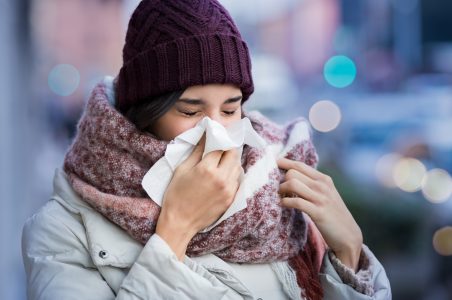
As a rule, itchy anything (eyes, throat, ears) is an indication of allergy. Sneezing, a sore throat, and nasal congestion can all be seen in both a cold and allergies. A secondary means of distinguishing between cold and allergies is timing. Do symptoms occur each year during January and February when Mountain Cedar is high? The third distinguishing factor is duration. Colds most often last 7-10, and sometimes up to 14, days. Allergies can extend many weeks and even months.
What causes an allergy?
For an allergic person, there are cells in the body which contain a “lock”. Pollens unlock the cell and release chemicals, among them histamines. The histamines attach to receptor sites and cause the sneezing, itching and congestion.
What are the best allergy treatment options?
There are several good options available without the inconvenience or expense of visiting a physician. The two primary medications are antihisamines and nasal steriouds.
An antihistamine tries to block the receptor before the histamine gets there or to bump the histamine off, but antihistamine attaches in such a manner as to relieve symptoms.
However, there is a competition between the histamine and the antihistamine. With mild allergy symptoms, or low pollen counts, an antihistamine is sufficient. If the pollen counts rise, or allergies are more severe, it is not possible to take enough antihistamine to overcome the effects of the histamine.
Decongestants are commonly added to antihistamines to help with symptoms. As a rule, decongestants are needed for the inital two or three days of allergy symptoms. With regular antihistamine use, decongestants should no longer be required. Decongestants also raise blood pressure, though this normally resolves once the meds are stopped.
When do I use nasal steroids?
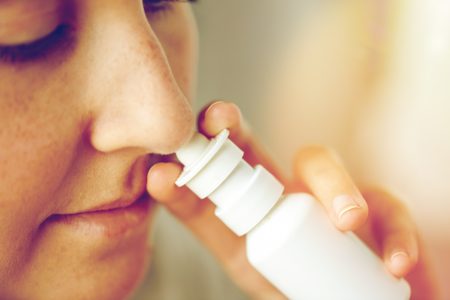
When antihistamines no longer relieve symptoms, nasal steroids become helpful. Nasal steroids act differently than antihistamines. They change the configuration of the “lock” on the first cell and thus prevent the cell from opening and discharging the histamine content.
Histamine takes 7-10 days to “burn up” and thus the effect of the nasal steroid will not be seen immediately. Nasal steroids used today will have their greatest effect in 10-14 days.
Use nasal steroids about two weeks before the arrival of “the season”. For Mount Cedar, start to think of their use around Thanksgiving. For the Spring Trees, begin nasal steroids on Valentine’s Day. For Summer Grasses, start treatment around Mother’s Day. For Fall allergies, begin nasal steroids around Labor Day. For those who have mold allergies, anythime a wet pattern starts begins the nasal steroids. It takes the mold several days to a week to reproduce sufficiently during wet seasons to cause measurable levels and symptoms.
If you forget to start the nasal steroid early, a doctor may be willing to provide an injection of steroids, or a prescription for oral steroids. However, studies haven’t shown shots to be more effective than pills.
Steroid nasal sprays are not addicting and can be used in combination with antihisamines. For moderate to severe allergies, when pollen counts are high, or if we forget the daily nasal steroid, we can benefit from using both approaches.
Nasal flushing with saline rinse and a Neti pot is another effective treatment and preventive measure for allergy sufferers.


